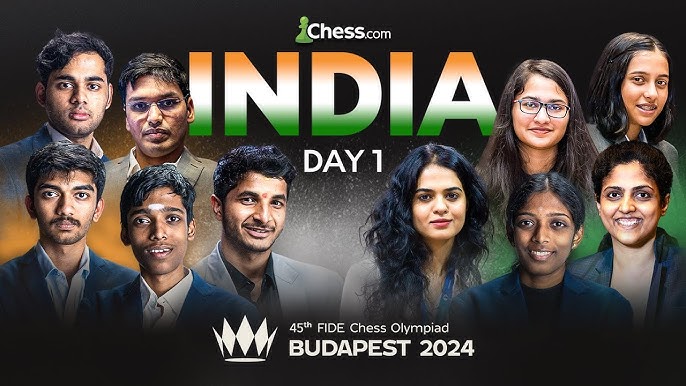The Rise of a Young Chess Prodigy
In the world of chess, few players have made as significant an impact as 18-year-old D. Gukesh. Recently, Gukesh has been at the forefront of India’s impressive performance in the 45th FIDE Chess Olympiad, showcasing his exceptional skill and determination, particularly in endgame situations.
A Masterpiece Against Wei Yi
One of the most notable moments of the Olympiad came when Gukesh faced off against China’s Wei Yi in Round 7. This match was crucial, as it pitted two of the world’s top young players against each other. The game was a testament to Gukesh’s strategic prowess, as he managed to grind out a win from an objectively drawn endgame.
The match lasted 80 moves, with Gukesh employing a complex endgame strategy involving two knights against a rook. Despite the odds, he manoeuvred Wei Yi into a losing position, securing a 2.5-1.5 victory for India. This win was pivotal, as it helped India maintain their perfect score and sole lead in the tournament.
The Impact of Gukesh’s Win
Gukesh’s victory over Wei Yi was not just a personal triumph but also a significant milestone for the Indian chess team. It highlighted the team’s strength and depth, particularly in critical matches. India’s perfect score of 14/14 after seven rounds is a remarkable achievement, and Gukesh’s contribution has been instrumental in this success.
Contrasting Moments: Resignation and Triumph
However, Gukesh’s career has not been without its setbacks. In a previous tournament, the Asian Games team event, Gukesh resigned in a drawn rook and pawn endgame against Parham, which led to India drawing with Iran. This resignation was criticized, especially given the team context, where a draw felt like a loss. Despite having only 40 seconds left, many felt that Gukesh could have played on to secure the draw.
In contrast, his recent win against Wei Yi demonstrates his growth and ability to handle high-pressure situations. This victory is a stark reminder that even the most challenging endgames can be turned into wins with the right strategy and perseverance.
Team Dynamics and Future Prospects
Gukesh’s performance also underscores the importance of team dynamics in chess. While individual brilliance is crucial, the collective effort of the team is what ultimately leads to success. India’s strategy of fielding a balanced team, including players like Praggnanandhaa, Vidit, and Arjun Erigaisi, has been key to their success. However, there have been suggestions that India could benefit from more aggressive play from lower-rated players on boards 3 and 4 to complement the top players.
As Gukesh continues to rise through the ranks, his future looks promising. He is currently one of the top contenders for the World Championship and has already shown that he has the skills and mental toughness to compete at the highest level.
Conclusion
Gukesh’s endgame mastery against Wei Yi is a highlight of the 45th Chess Olympiad and a testament to his growing reputation as one of the world’s best young chess players. His ability to squeeze wins out of drawn positions is a skill that few possess, and it has been instrumental in India’s success in the tournament. As the Olympiad continues, all eyes will be on Gukesh and the Indian team to see if they can maintain their perfect score and bring home the gold.

